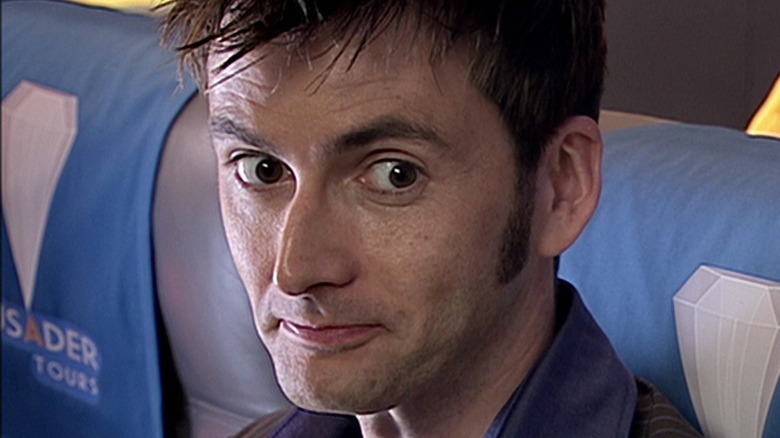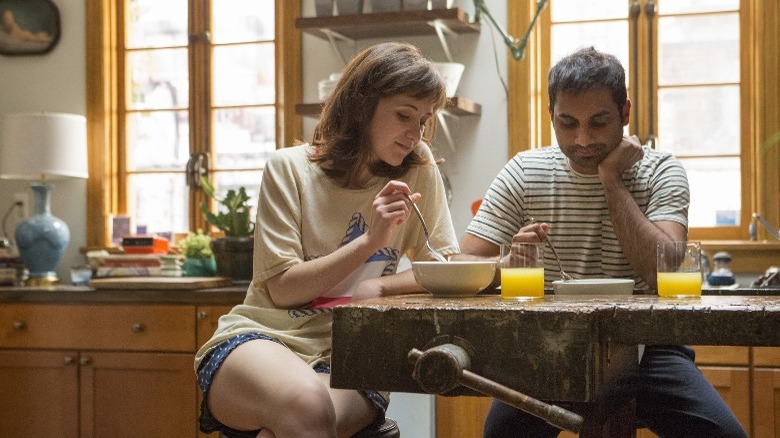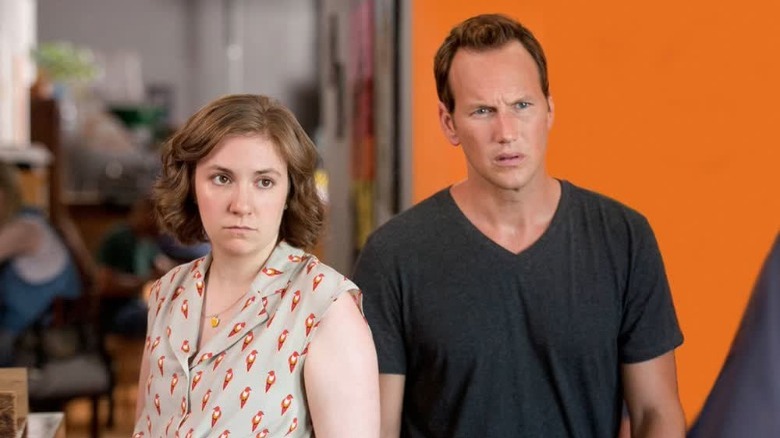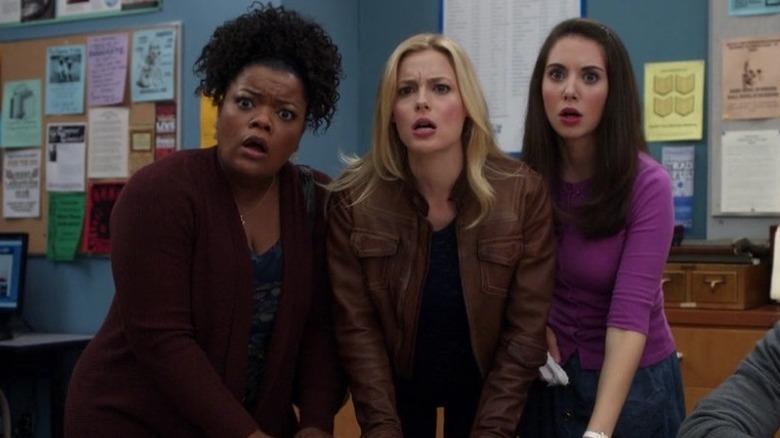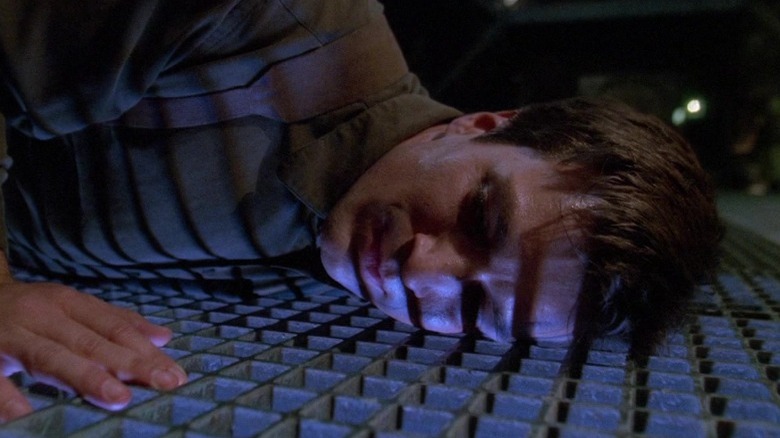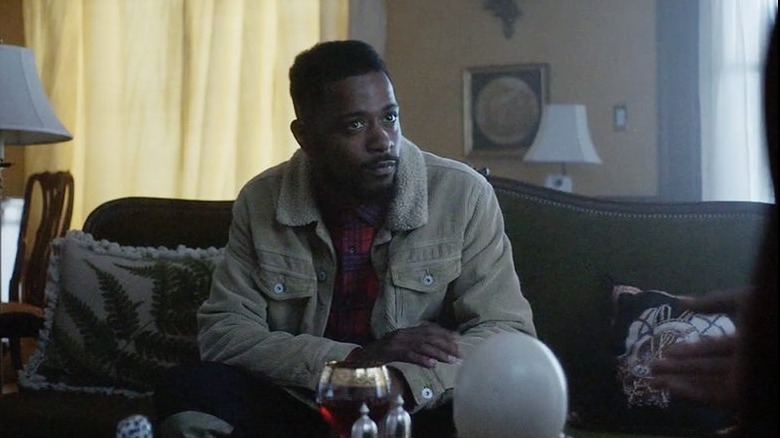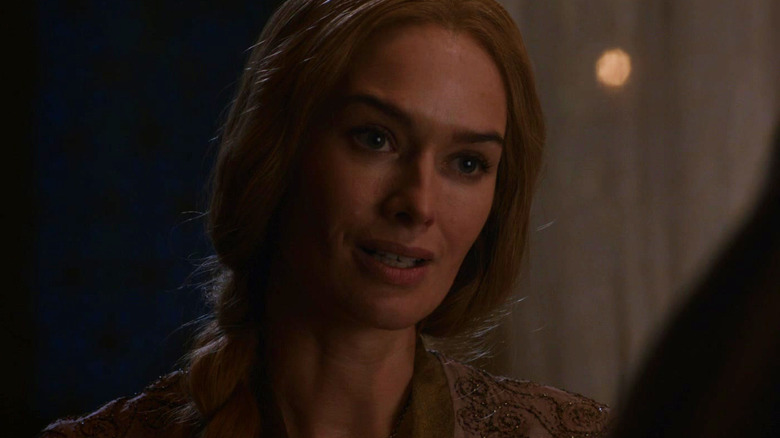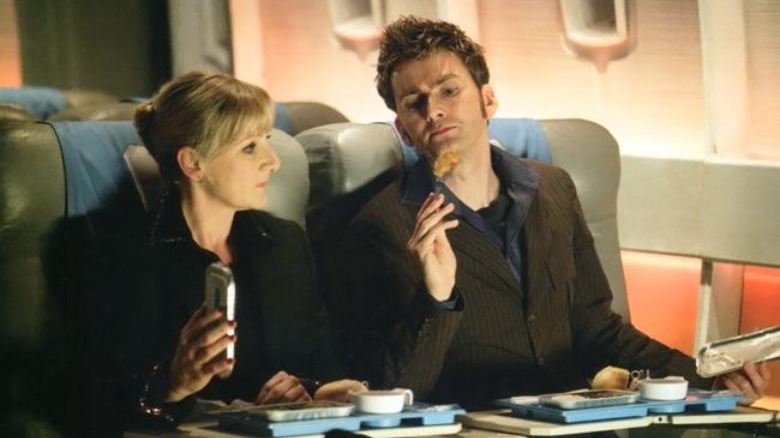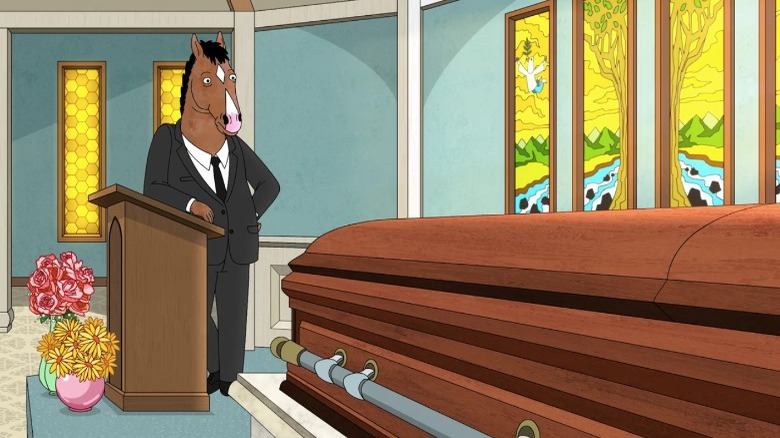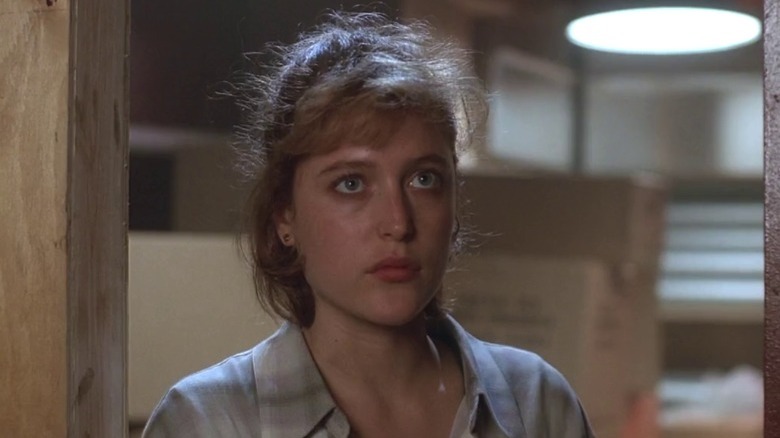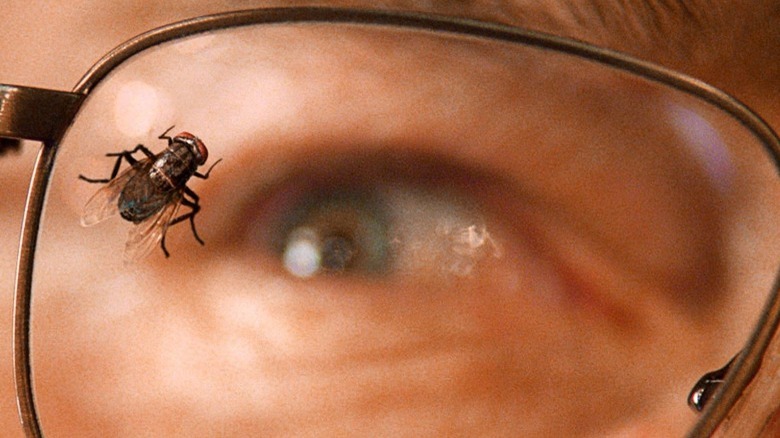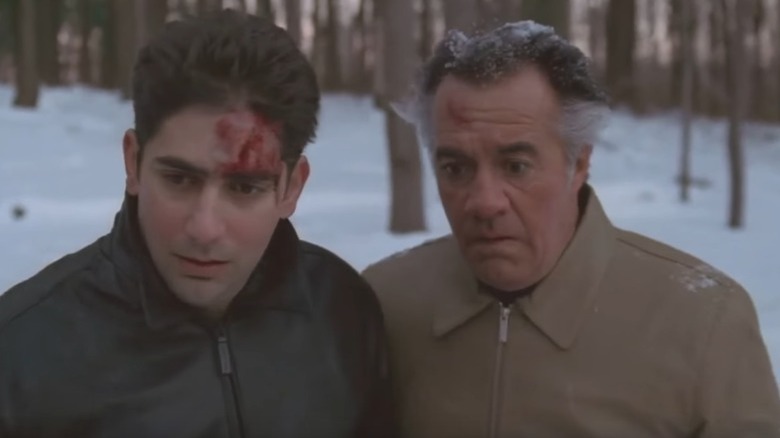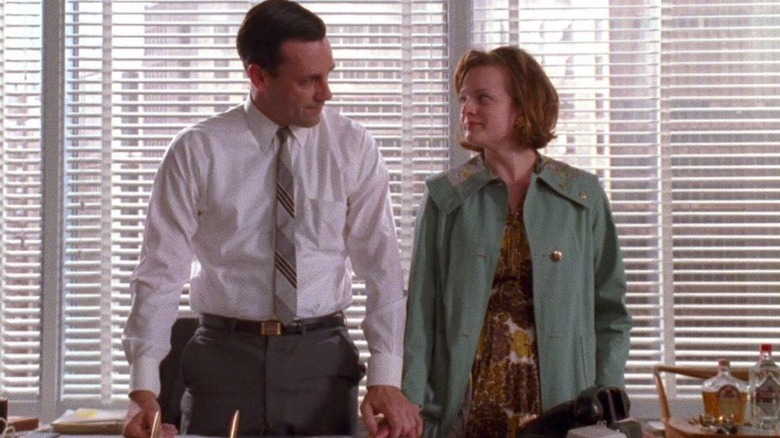The Best TV Bottle Episodes, Ranked
Television shows are so time-consuming and expensive to make, they occasionally take refuge in a bottle episode. Typically, a bottle episode takes place almost entirely in one set, and features only a few of the regular cast members. But while this unique approach might be most famous as a cost-cutting maneuver (and occasional last-minute save when plans for a different episode fall through), the bottle episode has also become a form unto itself.
Normally expansive shows use the bottle episode to explore their characters in greater depth, dream up surreal scenarios, and experiment with their own themes. In the age of binge-watching, a good bottle episode does something unique: It slows down to focus on the apparently mundane, often in real time, and consider the subtleties of the story being told. It's easy to imply big, important things when you cut together a montage that covers huge stretches of a time, but by focusing on characters in a single room, a good television show can tell us everything with only the potent details. In celebration of this stupendously spare approach, we're ranking the best bottle episodes on television, from the merely great to the absolutely sublime.
13. Master of None: Mornings
In "Mornings," the penultimate episode of Season 1, "Master of None" combines montage with the bottle episode to tell a story about the pains and pleasures of cohabitation. Dev (Aziz Ansari) and Rachel (Noël Wells) have just moved in together, and their small apartment (which is still pretty big by New York City standards) is quickly forcing them to confront their differences. The divide is obvious: He's the sort of tidy person who cleans up after himself and squeezes toothpaste from the bottom of the tube, while she leaves clothes all over the floor and haphazardly squeezes from the middle.
Only brief glimpses of the world outside the apartment are offered as "Mornings" explores the way round-the-clock intimacy can be as oppressive as it is comforting. The way couples handle their smallest fights can inform the way they handle the bigger ones, as Dev and Rachel soon learn. They tackle cultural differences, their intimate life, and meeting each other's parents with insecurity and passive aggression. Though "Mornings" ends on a happy note, it poignantly marks the fact that this relationship is probably not meant to last forever.
12. Girls: One Man's Trash
"One Man's Trash," a Season 2 episode of "Girls," doubles down on everything that makes lead character Hannah (Lena Dunham) such a controversial figure. She displays her major lack of self-awareness, details her problems with almost no subtext, and makes some very questionable decisions. But in showcasing her brief, idyllic connection with a rich, handsome doctor played by Patrick Wilson, "Girls" plays to its greatest strengths and explores privileged ennui in an entirely new way.
Hardly anything happens as Hannah and Joshua hang out for a couple of days in his expensive brownstone. They play ping pong, they have sex, and they talk about loneliness. It's a chance to see Hannah outside of her normal context, and builds up to a cathartic monologue in which she tearfully admits that she wants to be happy, and is coming to resent the shell of sadness and self-loathing she's adopted in the pursuit of experience for her art. "One Man's Trash" makes the viewer spend time with the self-absorbed, deeply tragic figure at its center, which probably doesn't sound like an enticing idea to anyone not already on the show's side. But this episode makes it clear that "Girls" doesn't actually require viewers to like Hannah: It's a plainly fascinating look at the embodiment of Millennial angst as she makes peace with the comforts she's been telling herself she doesn't want.
11. Community: Cooperative Calligraphy
Many sitcoms offer nothing but bottle episodes. "Cheers" is set almost entirely in one bar, "Seinfeld" takes place either at the apartment or the diner, and "The Office" mostly happens in, well, the office. Though "Community" takes place in the relatively expansive setting of Greendale Community College, Season 2's "Cooperative Calligraphy" goes fully meta by trapping the study group in a conference room to search for a missing pen. Media-savvy Abed (Danny Pudi) calls the set-up a bottle episode several times, for good measure.
As the situation quickly escalates, suspicion pings from one member of the study group to the next like a pinball. Soon, they're strip-searching each other and tearing up the carpet in a frenzy to prove that the pen must exist somewhere. "Cooperative Calligraphy" stands among the best episodes of "Community" without the benefit of elaborate sets or costumes — which is really saying something, given this series produced full-scale Ken Burns parodies and zombie sagas. It's non-stop hilarious, structurally experimental, and manages to tell a meaningful story about trust.
10. Firefly: Out of Gas
The beloved and unjustly canceled "Firefly" at least got to produce "Out of Gas" during its brief run. An episode that functions as a tribute to the show itself and the chemistry of its cast, it's an especially bittersweet watch nowadays, when every viewer knows the show's fate. "Out of Gas" is a deceptively complicated bit of storytelling that takes place in three different timelines, all bottled up on the spaceship Serenity. Captain Malcolm Reynolds (Nathan Fillion), near death, struggles to restart the derelict ship all alone. This is intercut with flashbacks that explain how the ship got this way and where the crew went, along with even older flashbacks that explore how Mal met each member of his team and surrogate family.
At this point in its short run, "Firefly" has a truly firm grip on its characters. The stories of how they all joined this crew are hilarious and dripping with dramatic irony. They play wonderfully against Mal's struggle to survive and get an engine part all the way across the ship, which really makes you feel the geography of Serenity's interior. "Out of Gas" is "Firefly" at its sentimental, dramatic, and witty best.
9. Atlanta: Teddy Perkins
Though its entire run is experimental and groundbreaking, the debut of Season 2's "Teddy Perkins" is what set "Atlanta" apart as a singularly genre-defying show. Darius (LaKeith Stanfield) goes off on a solo adventure to pick up a free piano advertised online. Once he arrives at the creepy mansion, however, things get bizarre. Teddy Perkins, the home's owner, turns out to be a sinister man played by Donald Glover. He sports downright terrifying whiteface makeup that makes him unrecognizable and employs a shrill and unsettling voice for this one-of-a-kind role.
Teddy speaks of an abusive father that drove him and his brother to become musical prodigies — many critics, including IndieWire, interpret him as a strange, gun-toting version of Michael Jackson. Is this the intention? Perhaps. It's hard to discern any deeper meaning with absolute certainly, because you spend the entire episode deathly afraid Darius won't make it out alive. Though the episode ends in predictable bloodshed, it might not be the bloodshed you expect. "Teddy Perkins" defies all expectations by taking "Atlanta" into the realm of nightmare-inducing horror.
8. Game of Thrones: Blackwater
Sometimes, a bottle episode is a compromise between the grandiosity of artistic vision and the constraints of reality. In terms of the former, Season 2's "Blackwater" represents a stunning step forward for "Game of Thrones," as it glimpses the full breadth and scale of the Battle of Blackwater Bay. In glimpses, we follow Tyrion from place to place as he peers into the darkness, over barricades, and into the proverbial fog of war. There are moments boasting huge amounts of green wildfire, fierce swordplay, and sneak attacks.
But the true drama of the episode is with Queen Cersei (Lena Headey) and the noble ladies locked up in Maegor's Holdfast, who have no clue how the battle is going. As she drinks, Cersei grows more and more prickly, revealing the brutal bargains women of Westeros must strike to survive. Of all the war-centric episodes on "Game of Thrones," "Blackwater" is the best, because it grounds its bloody pyrotechnics in small, vivid character moments.
7. Doctor Who: Midnight
A Season 4 installment of the modern "Doctor Who" series, "Midnight" proves how important it is for the Doctor to have a human companion. Leaving his current pal Donna (Catherine Tate) behind at a resort, the Doctor (David Tennant) spends the entire episode on a tourist shuttle to a sapphire waterfall on a planet made of diamonds, which is also covered in deadly radiation. When the shuttle stops suddenly and one of the passengers becomes possessed by a mysterious entity, the tension escalates. Soon enough, the Doctor's natural inquisitiveness and the thrill of adventure get him in trouble.
As the claustrophobia grows to Stephen King-esque levels, the other passengers turn on the mysterious man who won't admit his real name or origin when pressed. It doesn't help that he seems oddly excited by what's going on, instead of frightened like the rest of them. Without Donna to temper his reactions and relate to people with a comfortingly human touch, the Doctor's natural zeal comes across as threatening mania. No wonder he nearly gets tossed out the airlock. David Tennant's tense and shifty performance shines especially bright in this rare companion-free installment.
6. BoJack Horseman: Free Churro
"BoJack Horseman" spends its entire run looking for new and surprising ways to be a hilarious bummer. This leads to Season 5's "Free Churro," a bottle episode which stands out as a major rarity — animation doesn't tackle this form very often. Nearly all of "Free Churro" consists of BoJack (Will Arnett) delivering a eulogy for his recently departed mother. True to character, he makes the eulogy all about himself as he wanders from story to story, mentions getting Jack in the Box (and a free churro) on the way to the funeral, banters with the organist, and generally savors the chance to hold an entire church full of people hostage.
Will Arnett's delivery gets a well-deserved workout, as BoJack manages to tell an entire story without going anywhere over the course of the episode. Little by little, and with many tangents along the way, BoJack realizes his mother's last words, "I see you," weren't a cryptic acknowledgment of his personhood — they were merely his hospital-bound mother reading the letters "ICU." "BoJack Horseman" has a well-earned reputation for the shatteringly sad plot developments it drops towards the end of each season, but "Free Churro" is a mid-season classic that balances light and dark with devastating aplomb.
5. The X-Files: Ice
With "Ice," "The X-Files" crafts a tense bottle episode that plays like a quasi-sequel to John Carpenter's "The Thing." Mulder (David Duchovny), Scully (Gillian Anderson), and a few scientists investigate a mass murder-suicide at a remote Alaskan research outpost, and discover it may have been caused by an alien parasite someone unwittingly dug up. The practical effects work on the parasites is brilliant: They look like mealworms on steroids, and wiggle around almost too realistically.
Since anyone can be infected with the worms, which quickly move to the brain, paranoia descends over the proceedings. As in "The Thing," there's a parasite-possessed dog in this story — but don't worry, it survives. The same can't be said for Mulder and Scully's hapless scientist companions, one of whom is played by Felicity Huffman before she became a huge star. "Ice" is a fantastic episode that showcases "The X-Files" at the height of its self-contained "monster of the week" format.
4. Fleabag: Season 2, Episode 1
The brilliance of "Fleabag" is in the way star Phoebe Waller-Bridge breaks the fourth wall with cutting asides and conspiratorial glances; it makes you feel as if you're part of the show itself. In Episode 1 of Season 2, Fleabag brings us along to a dinner with her family and a priest, who knows her godmother. Things start out tense and quickly snowball into chaos as we're bottled up alongside the attendees in a miasma of restrained politeness, resentment, and passive aggression.
Setting the tone for what ends up being a powerfully emotional Season 2, Fleabag begins this episode with a bloody nose in a restaurant bathroom. "This is a love story," she promises us, as the blood drips — a telling symbol of the mixture of longing and humiliation that follows. The episode hits the ground running, catches us up on the year that passed between seasons, and seamlessly reintroduces old familial tensions, all within the space of one awkward dinner.
3. Breaking Bad: Fly
"Fly" does deep, important character work that informs the whole of "Breaking Bad." It's also a jarring change of pace from the show's normal breakneck speed, but even the biggest "Breaking Bad" fans have to admit it can't be all action, all the time. "Fly" isolates us with Walt (Bryan Cranston) and Jesse (Aaron Paul) as they spend nearly the entire episode trying to catch a fly in the lab, lest it contaminate their latest meth cook. It's unclear whether the fly is really that big of a deal, or just something that touches on deeper issues rooting around Walt's psyche. He becomes so manic, Jesse drugs him with sleeping pills.
We're treated to some of Bryan Cranston's best work of the series here. Walt muses that he somehow missed the moment he was meant to die, perhaps the night after Holly was born. Now he's so deep in the drug trade, his family can't be protected from it. Delirious, he comes wrenchingly close to admitting to Jesse that he let Jane die. This is as nerve-wracking and tense as any of the show's explosions or shoot-outs, precisely because it's such a departure in tone. By narrowing its focus to Walt and Jesse's long day of the soul, "Breaking Bad" produces one of its greatest episodes.
2. The Sopranos: Pine Barrens
The "Pine Barrens" episode of "The Sopranos" is a masterpiece that feels like a 21st century update of Samuel Beckett's "Waiting for Godot." Christopher (Michael Imperioli) and Paulie (Tony Sirico) try to make a collection from a cantankerous Russian, but after Paulie provokes a fight, they think they've killed him. When they try to dump him in the Pine Barrens, he wakes up and escapes. They spend the rest of the episode wandering in the snow, unable to find the lost Russian and increasingly desperate to survive themselves.
"Pine Barrens" occasionally departs from the woods to tell a small story about Tony's (James Gandolfini) burgeoning relationship with the unstable Gloria (Annabella Sciorra), but calls from Christopher and Paulie keep interrupting him. The story in the woods simply can't be resisted. It's bleak, hilarious, and indistinguishable from outright farce at times. Impressively, it manages to create a believable bond between two characters who previously had nothing but contempt for one another. Simply put, "Pine Barrens" is one of the best episodes of one of the best television shows of all time.
1. Mad Men: The Suitcase
Season 4's "The Suitcase" is the high-water mark of "Mad Men." In sticking with Don (Jon Hamm) and Peggy (Elisabeth Moss) throughout one long, frustrating night at the office, it tells a story that hits all the major themes of the show: The pleasures and sorrows of work, the frustrating impossibility of connection, and the fear that we're never truly known. While they try and fail to put together an ad campaign for Samsonite, Peggy has to deal with the breakup of one relationship and the ghost of another. Don, who grows increasingly frayed, avoids a call about the death of a dear friend. Both of them come to appreciate the new families we make as we move through life.
Jon Hamm and Elisabeth Moss make the absolute most of this opportunity to stretch their tremendous talent. Of all the bonds on this show, Don and Peggy's is the most central: It's a connection based on mutual respect, but also mutual utility. As they drink, argue, and snoop around the office outside the bounds of normal hours, it becomes clear they're kindred souls in a way they'll never be able to properly articulate.
